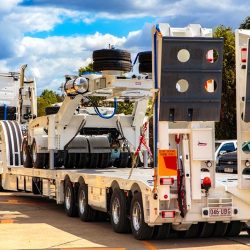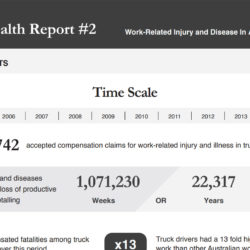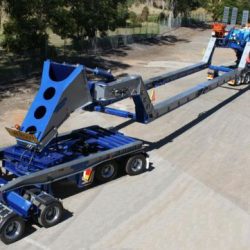We’ve talked previously about the proposed changes to the Chain of Responsibility (CoR) laws that were due to come into effect in the middle of 2018. On October 1, 2018 this will become a reality for every business involved in the design, manufacture or operation of anything in the heavy vehicle industry. This includes corporations or partnerships, employees and company directors, drivers and their contractors, and even people who schedule deliveries or manage their unloading.
As part of the Heavy Vehicle National Law (HVNL), the Chain of Responsibility ensures that every part of the supply chain takes their duties to provide a safe, reliable and law-abiding product or service seriously. Heavy Vehicles, due to their inherent speed, size and maneuverability ranges, require their own set of rules that go far beyond those required for the safe operation of standard passenger vehicles. While there were many laws in place for the operation of heavy vehicles, this new legislation ensures that the responsibility for safety is applied equally along every step of the supply chain.
Managing risk
The Chain of Responsibility laws is designed to minimise, where possible, potential harm or loss (in other words, risk) involved in the operation of heavy vehicles. This is best achieved by having a thorough suite of safety management procedures in place. These include regularly reviewed standard operating systems and regular training exercises that identify potential risks. These would then be assessed, evaluated and controlled.
Further, the laws govern issues dealing with speed, driver fatigue, loading procedures and the physical presence of heavy vehicles such as mass or dimensions. Issues that arise must be regularly reported in a standard way, including to executive officers of the company in question, and those reported to must adequately document any actions taken to manage this risk.
Information sessions will be held by the NHVR around the country from the beginning of August until the end of September and are designed to introduce the laws to the public and safety risks can be dealt with through a robust Safety Management System.
Additional resources
For those who are unable to attend these sessions, the NHVR have created an online CoR Gap Assessment Tool. This free risk checker is customised for the many different roles in the workplace and asks the user to answer simple yes or no questions about safety procedures in the workplace and prompts for more detail when required. At the end of the five to 15-minute process, a report is generated that can be actioned upon to improve safety standards for that particular position.
Other online resources provided by the NHVR are digital publications about risk management procedures and how safety management systems work. Additionally, videos published by the NHVR detail first-hand accounts from a variety of heavy vehicle operators and logistics companies, showing how they implemented changes required by the new CoR laws.
These new laws are serious business. Failure to comply with them can result in fines that can range from $50,000 to $300,000 for individuals or $500,000 to $3,000,000 for corporations depending on the severity of the infringement.
We take safety seriously at The Drake Group and ensure that not only are our heavy haulage trailer manufacturing facility is a safe place for our team to work but the trailers themselves are safe and reliable on the road. Contact the Drake Group today to find out more.



